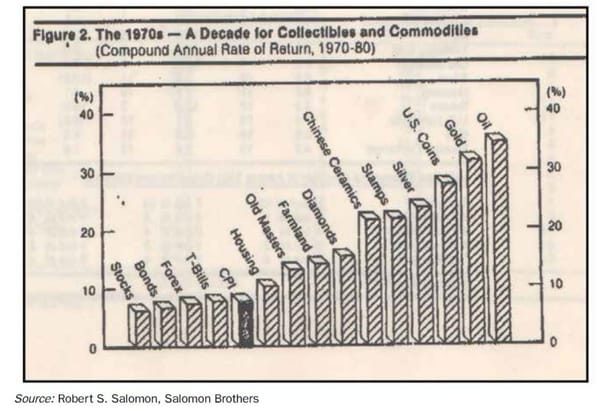Infrastructure and community projects in Panama
My adventures in deep community involvement
In January, it will be my seventh full year living in rural Panama.. It’s the longest I’ve ever lived anywhere since I left my childhood home.
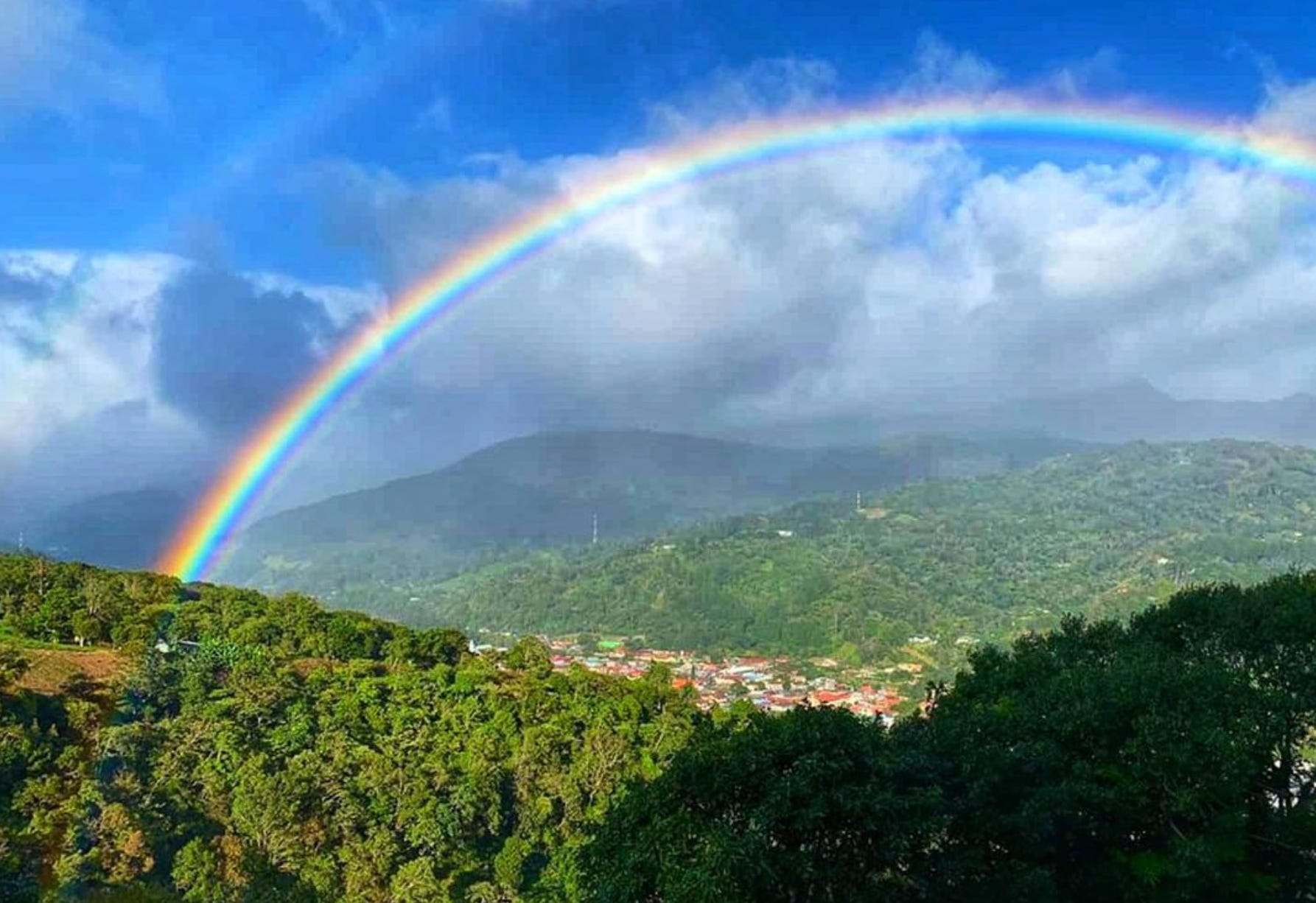
I live in a truly beautiful place and I love being here, but not all is rainbows and butterflies. I’ve been faced with real challenges that have forced me to collaborate with my community and grow as a man.
When I say, “my community”, I am mostly referring to the 100-150 families that live within walking distance. I employ people from this community on a short and long term basis. As I have gained a bit of a reputation, I have been approached to help in community service projects.
My adventure doing community service projects in Panama began a few years ago when I went around gathering signatures in a petition to get road work done.
Panama is a federal republic, and what this means in practice is that all of the tax dollars go to the Capitol in Panama City hundreds of miles away, and they never come back. Some major projects (like maintenance on four lane roads) gets done, but there is essentially no local tax base. Property taxes go to the federal government. Sales taxes go to the federal government. Municipalities receive some funding from the federal government. They also charge businesses (like my brick and mortar) a “letrero”, which is a fee for having a sign and advertising a business. I pay around $800/year. But municipalities don’t really have a big local tax base from something like property tax and aren’t really responsible for the roads. The rural areas surrounding towns receive almost no funding. Anyway, I learned about all of this when I went to try to get the government to come fix the road I live on. I want to be clear - I do pay taxes to Panama in multiple forms - and what started as my personal quest to improve the road I live on has evolved to my being deeply involved in the development of my community infrastructure. This post is about summarizing these experiences, and what I’m working on today.
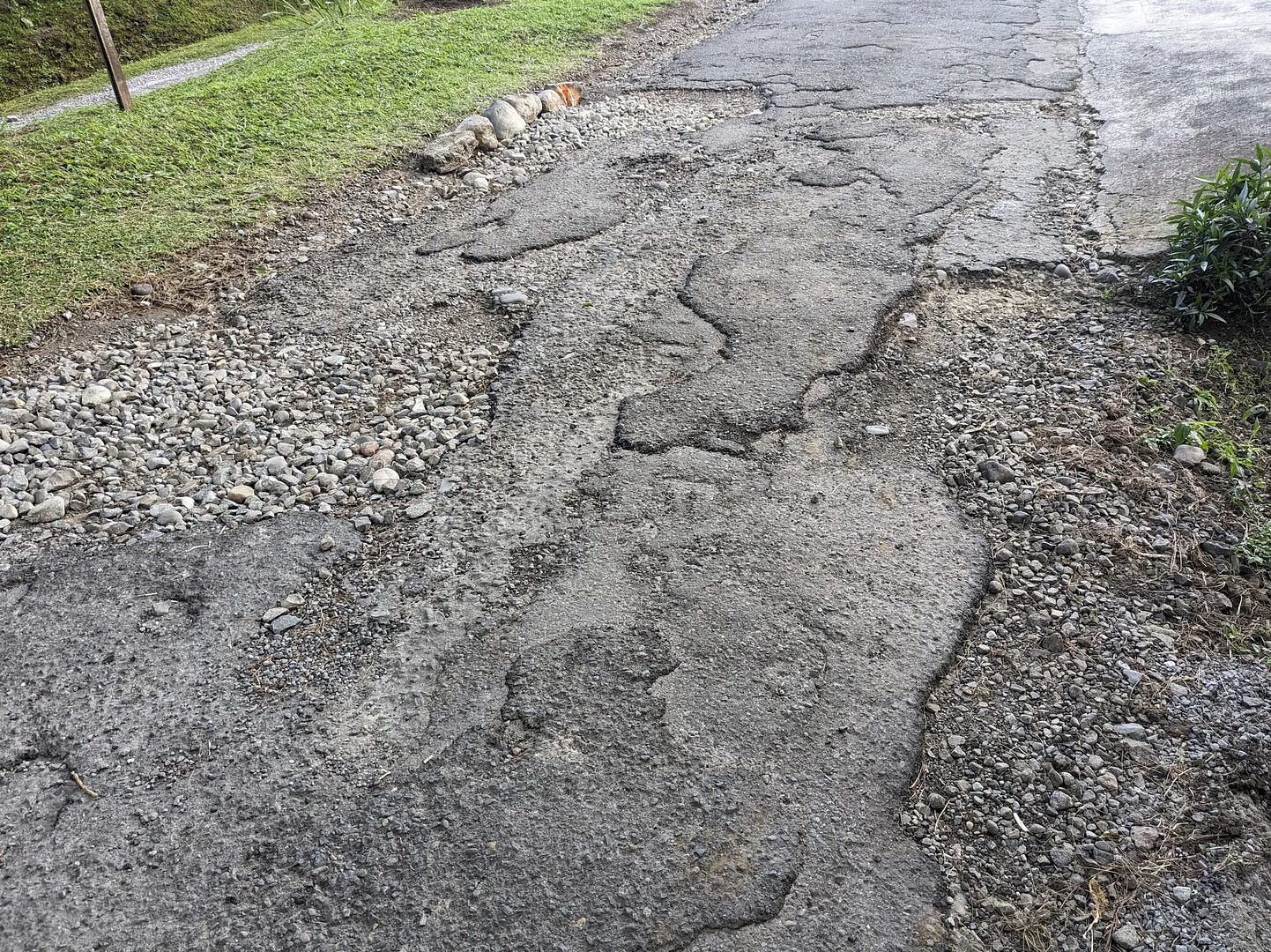
The first “road project” consisted of my gathering more than 100 signatures, from wealthy American retirees living in mansions to natives from one of Panamas many indigenous tribes living with dirt floors and metal roofs.
I took this petition, a letter I wrote along with all these signatures, map location, and photos, to the municipal representative, where I was assured some help would be provided.
After waiting many months, I decided I’d waited long enough. I filled a trailer up with gravel and started filling potholes. The local taxi drivers thought it was hilarious to see a gringo kid out doing the stuff the government was supposed to do and started posting photos in social networks. The city showed up the next day with a dump truck with some asphalt in it, patched some holes, took some photos, and left. Better than nothing, but no resurfacing or real, durable work.
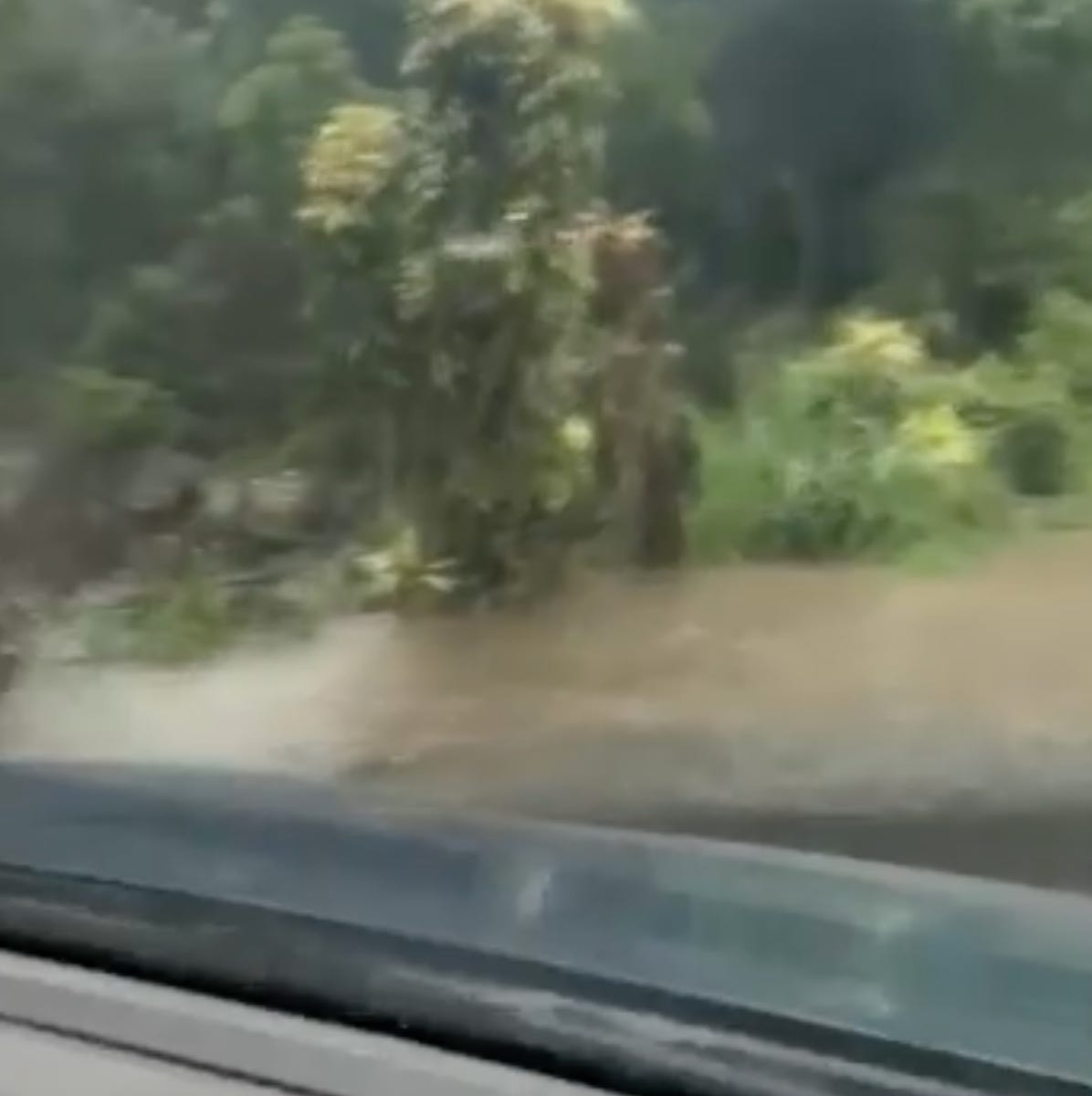
I became a bit of a road activist. In one case, a literal lagoon had formed behind a drainage ditch. There was a lot of water on one side, a narrow road, and a deep canyon below. It was a disaster waiting to happen.
The road started bowing, I made a big stink about it and showed that it could collapse any day, and had to be dealt with immediately. The city finally sent a backhoe up to help.
So the city has helped some locally - despite the fact that they don’t have much of a tax base - they at least try to keep any big disasters from happening, and they have done some work on local roads. So I did some of my own road building experimentation.
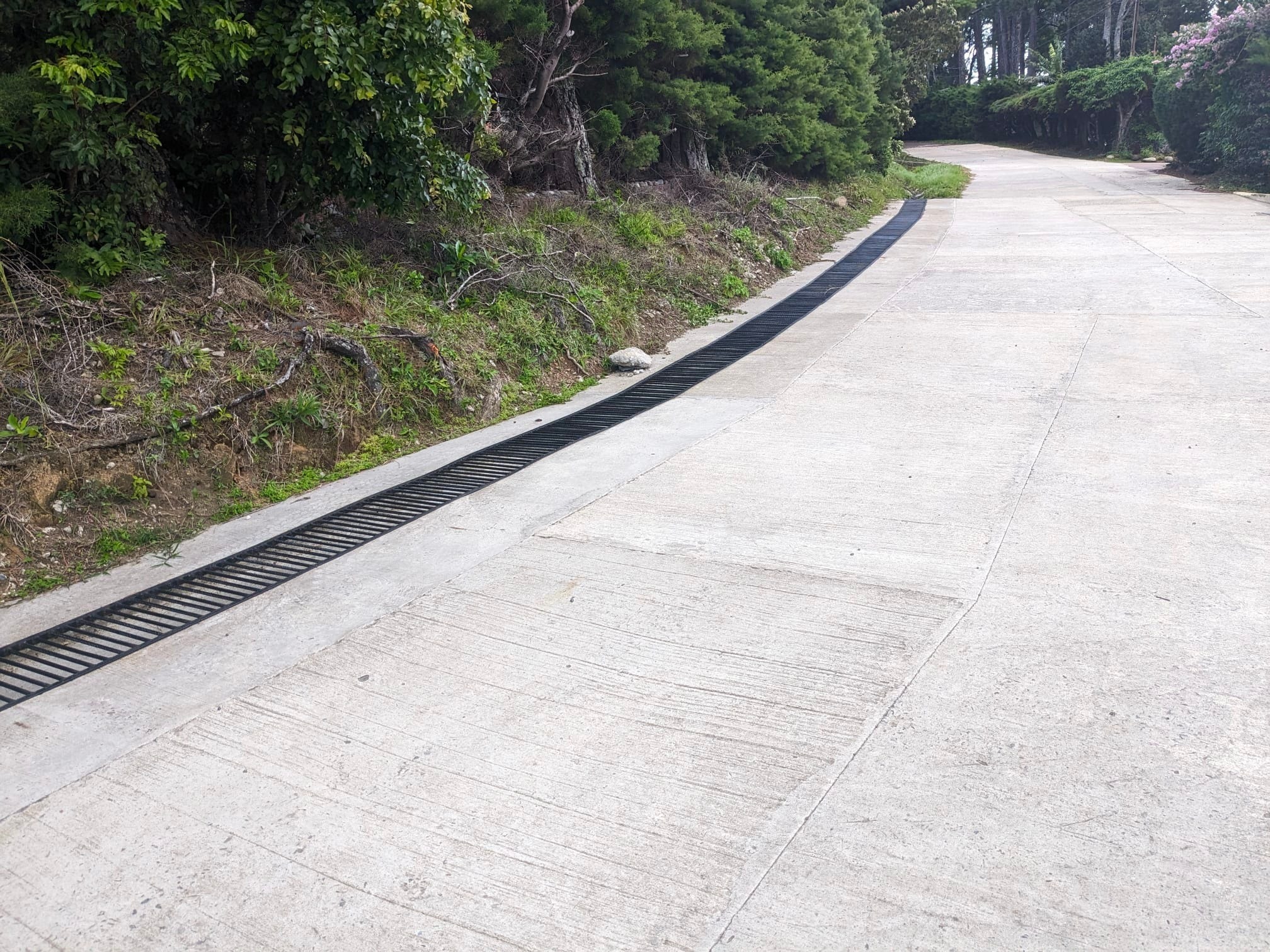
This is when people started realizing that I was serious about improving local infrastructure. There’s still a ton of work to do, and that work is going to be expensive. But in the end it does improve my quality of life, my local income, and my reputation in the community.
I asked for a tax exemption from my city and got an initial approval and then a runaround and lost paperwork story as is common here. I’ve since decided donating money to non profits is probably the best way forward (to receive the tax exemptions that way at the federal level). In the case above, one neighbor did decide to pay for the portion of the road that went in front of her own house. Another neighbor at another property, along with a farm owner, split the cost of making major improvements to that road’s drainage and surfacing equally. People can in some cases be collaborative and appreciative of things that benefit them. But many others were firm in the idea that they wouldn’t put in a penny. The idea of doing anything that “the government should do” deeply offends them.
The water
Water reliability has always been a problem in my area, due to both extreme weather and a lack of infrastructure / maintenance. I insulated myself a great deal with large storage tanks and rainwater catchment. But for months of the year, there is no rain. This year, the local community aqueduct that delivers water to hundreds of homes began a new project to replace a bunch of old steel pipe that had been laid generations before when the area was settled. Every sediment filter was full of iron.
The aqueduct had been for years been managed by a man whom some accused of stealing that was never friendly and didn’t seem to do more than the bare minimum. There was a local shakeup, and a 70 year old electrician named Chino (because he has some Chinese ancestry and looks Chinese) was given the charge of the water project. Chino is a man with vision and work ethic who gets things done. When a big storm caused a landslide up in the mountains, the hundreds of homes below had water because a 70 year old electrician working for almost nothing risked death by walking on steep jungle canyon trails to go figure out where the pipeline broke and fix it.
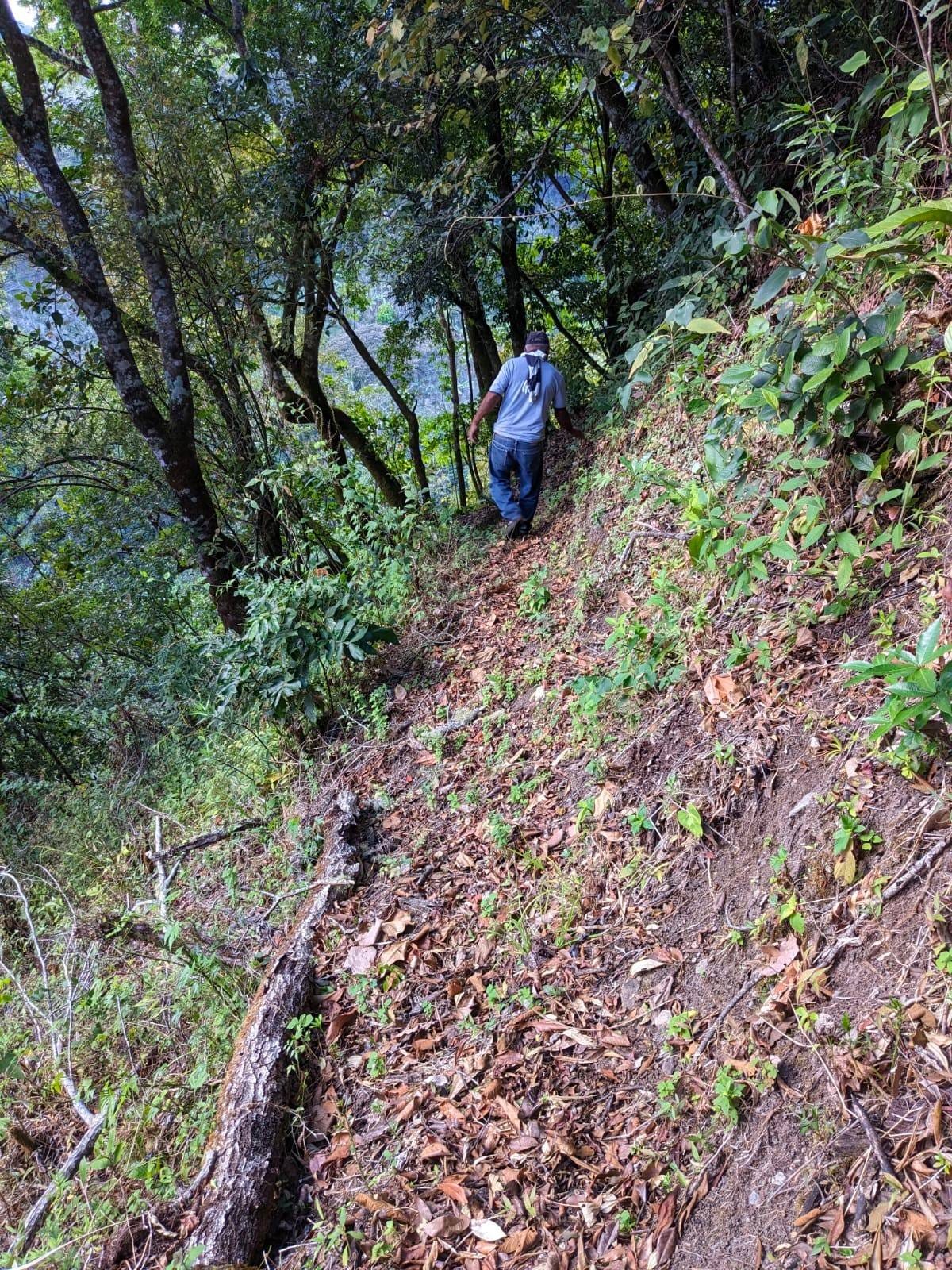
The water service being provided to my house - and to many other properties where foreign retirees had invested in some cases millions of dollars - was being maintained by an old man and whatever farm workers he could round up to go do the work. No vehicle. No place to store tools or materials. Nobody even there to help him on one occasion he fell down a mountain slope and broke several ribs while trying to fix a rupture in the line caused by a falling boulder.
I had known of Chino for years but I didn’t really know him until working with him. So back to the story. Chino was spearheading the effort to replace the old metal pipes. Day in and day out, he and his crew of onion and coffee pickers were out in the sun digging trenches, pulling out metal, and putting in PVC.
As this progressed, the water disruptions became more and more frequent. Due to the drastic elevation changes in the area (my property is 1000 meters below the water source), the new system was having a hard time holding together. Pipes were bursting everywhere. While some neighbors were enraged that their dinner parties and lawn concerts were being disrupted - and I actually watched some of them walk outside and yell at and berate these guys - I decided to go help. I bought them lunch. I brought them beer at the end of the day. I sent extra guys to help and paid them. And I set about solving some of the more technical problems related to regulating the pressure. I purchased some industrial pressure regulators, got industrial solvent for connecting joints, and taught others techniques for managing pressure. I lent use of my vehicle. I gave walkie talkies to the crew so that we could gradually open things up and see where issues developed and close them early. My decision to collaborate rather than criticize at this key moment made a big difference, and changed my life.
Chino asked me to document the system and help him map it. He asked me to do simultaneous translation at the water meetings for the many foreign residents who don’t speak Spanish. And I continued lending my vehicle, my maintenance employee, and my own time and labor whenever some big issue popped up (like a construction project breaking a line, which seems to happen once a month, a stuck valve, or just an opinion).
Meanwhile, Chino has continued his diligent work on the system, replacing kilometers worth of 8 inch pipe snaking through the jungle, rebuilding the spring house for the first time in 2 generations, adding testing and treatment capabilities, and building a retaining wall to keep the river - which can be contaminated by farms and debris - out of the mountain spring the water comes from.
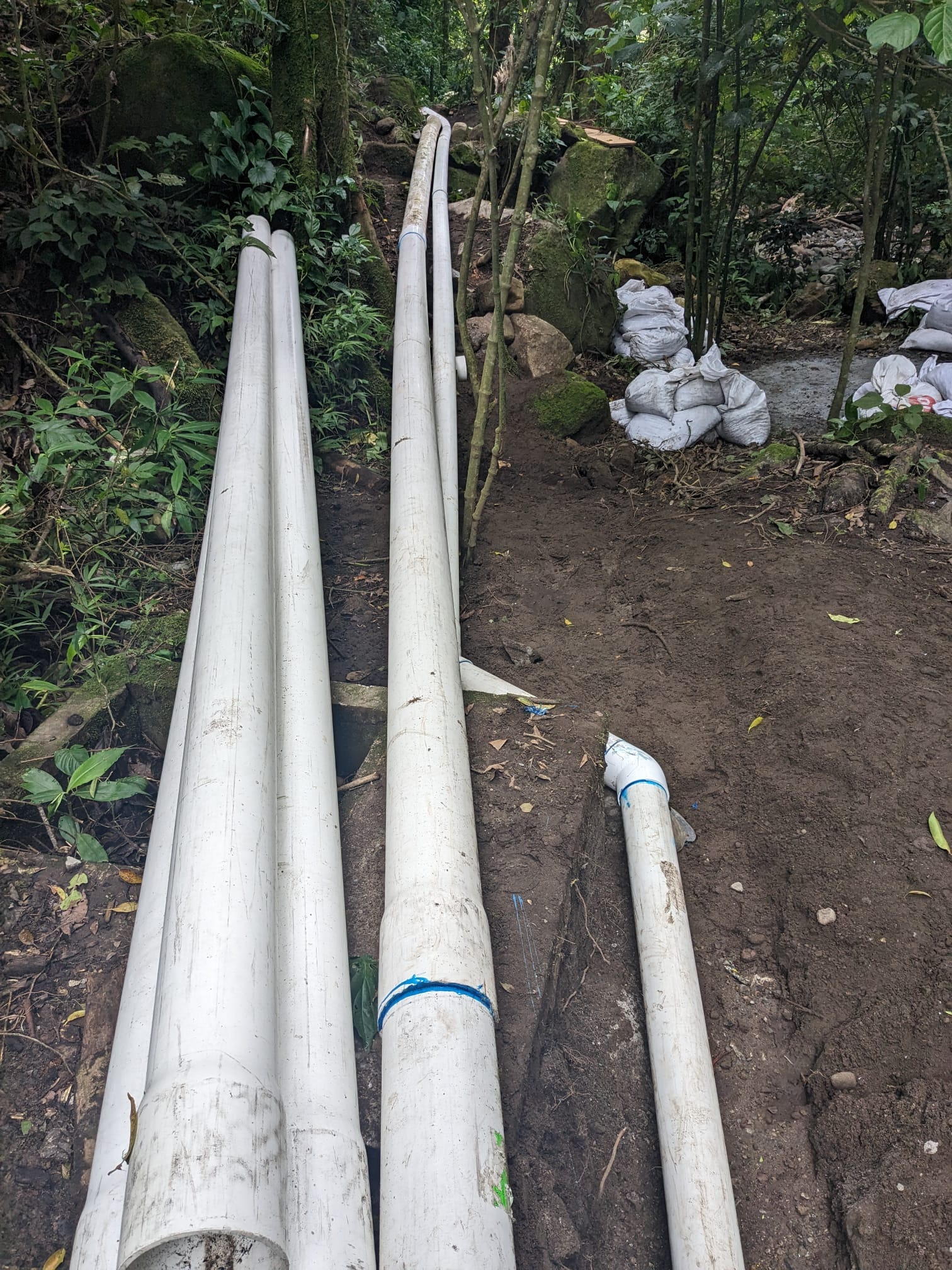
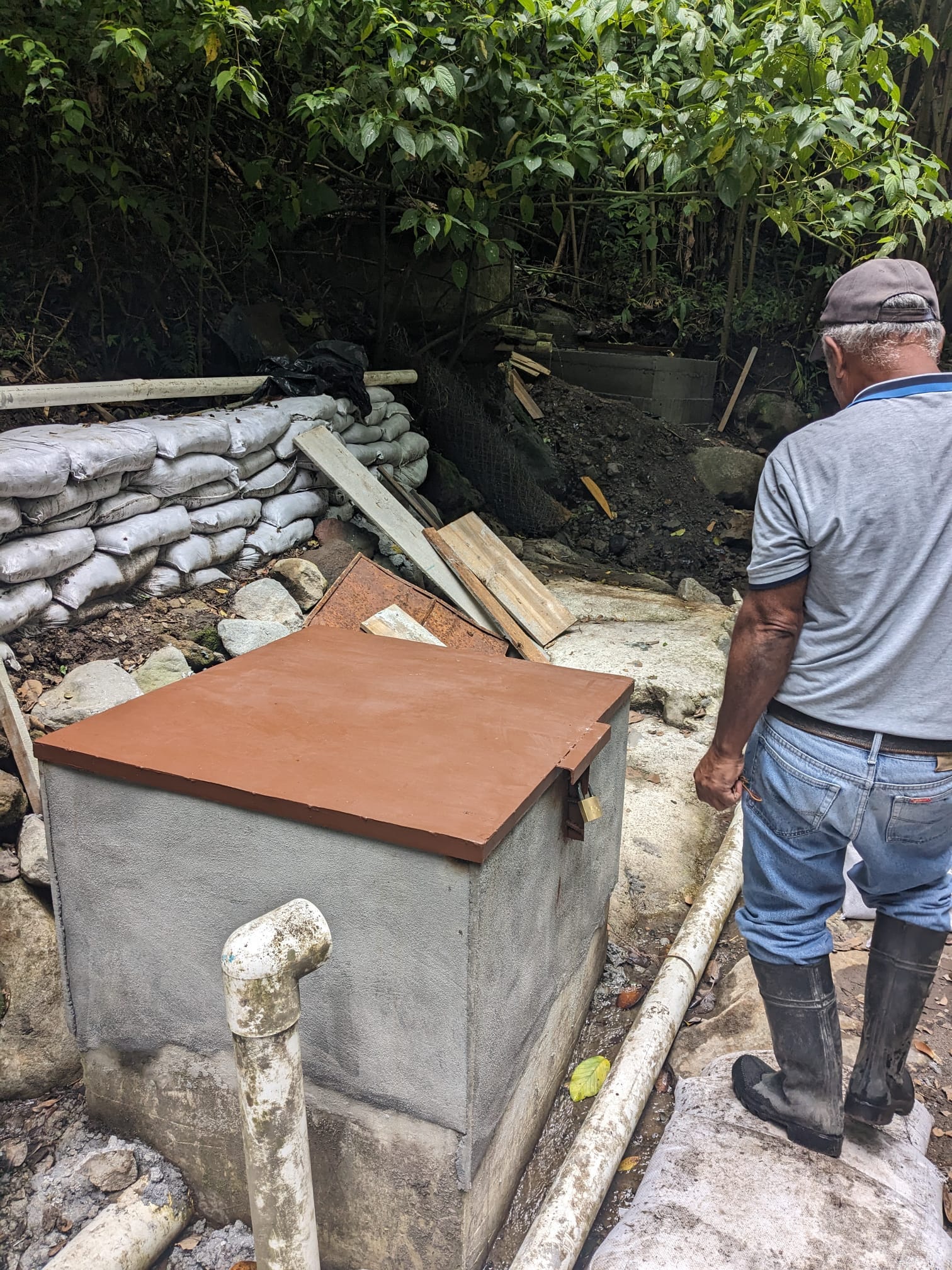
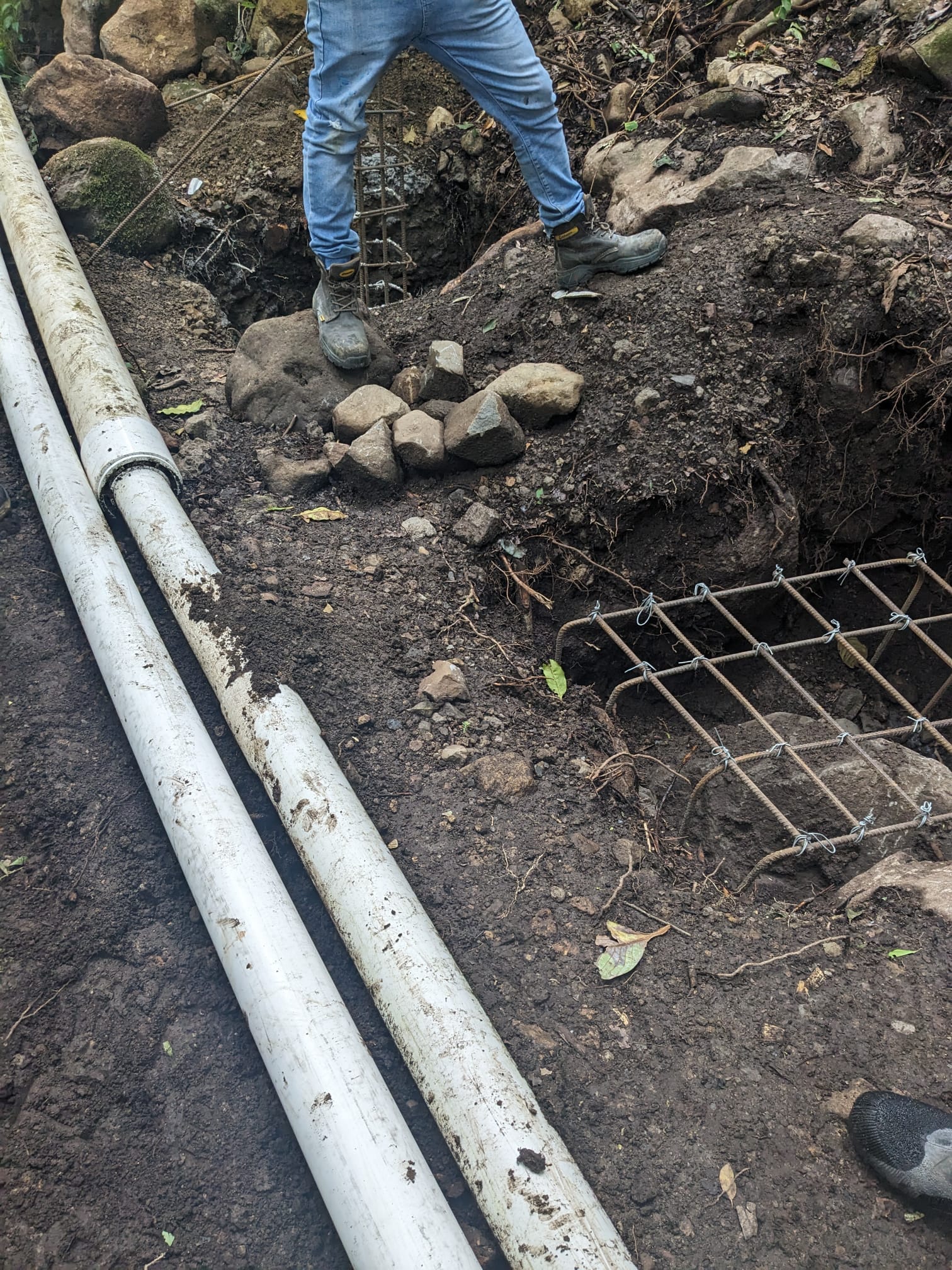
Recently, Chino asked me to help with another issue. The water system was running out of money. The user fees are determined by a terrible law written decades ago and the money saved through years of inaction had already been spent on the many necessary improvements. Many challenges to future proof the system remain - the water system still has no place to store tools and equipment. No vehicle. Many materials were donated by current political candidates with a qualifier that they had to be used or returned within 90 days (with no money left to pay labor to do the work). An American property developer purchased the land an important piece of the water infrastructure sits on (it was donated by another American decades ago, who is now dead, and his heirs sold the property) - a gigantic concrete cistern where all the treatment and storage is.
There are four separate property owners including the developer who own land where the cistern and water treatment was, and along the line where it would have been convenient to build another. All want outrageous prices, despite having no road access, partly because of generous views, and partly because they think owning the land the water pipeline passes through gives them power. Today, while facing frustration over the utter lack of willingness some people have to lift a single finger to help hundreds of homes receive water, I had an epiphany.
The community park
A few months ago I was approached by the trustee for another non profit that owned several hectares of land with a large covered pavilion (for basketball). In total, it’s around 6 hectares of land (15 acres), most of it flat. The property would likely sell for $2-3M if in private hands. The land was donated by another non profit many years earlier. Many of the original board members were too old (or deceased). The non profit is behind on years of legal fees. The property needs maintenance. I did my due diligence on the legal structure and the people behind it, and decided to help pay for a little bit of maintenance and cleanup - though much remains to be done.
Today it hit me that the water line passes through this property. It’s at the right altitude to allow for another gravity cistern. There is tons of space for maintenance facilities, water treatment, water storage - even an office. Today I proposed to the president of the non profit that I would pay their back legal fees and help them bring the non profit back into full legal standing. The non profit would then approve a segregation of land for the water system. He agreed.
Earlier this year, these were totally separate entities who I each became involved with for different reasons. I became involved with the water because I needed water. I became involved with the community park because the steward came to me and said, “I heard you’re a man who helps people and knows how to get things done, and I would like your help.” Both the water system people and the community park people knew each other, but apparently nobody had connected all the dots on how they could potentially collaborate.
Just months ago, the water system was looking at an unworkable set of factors - water price governed by dumb laws written decades ago, expensive land that made building basic infrastructure prohibitively expensive, and critical public infrastructure passing through private property. Now, there’s a sustainable path forward. I’m going to give the water system long term loans at low interest rates (with some concessions for myself), and help guide the collaboration between the park and the water system while cleaning up the legal issues for the park (which are easily resolvable and due to no bad intentions or illegal acts at any point).
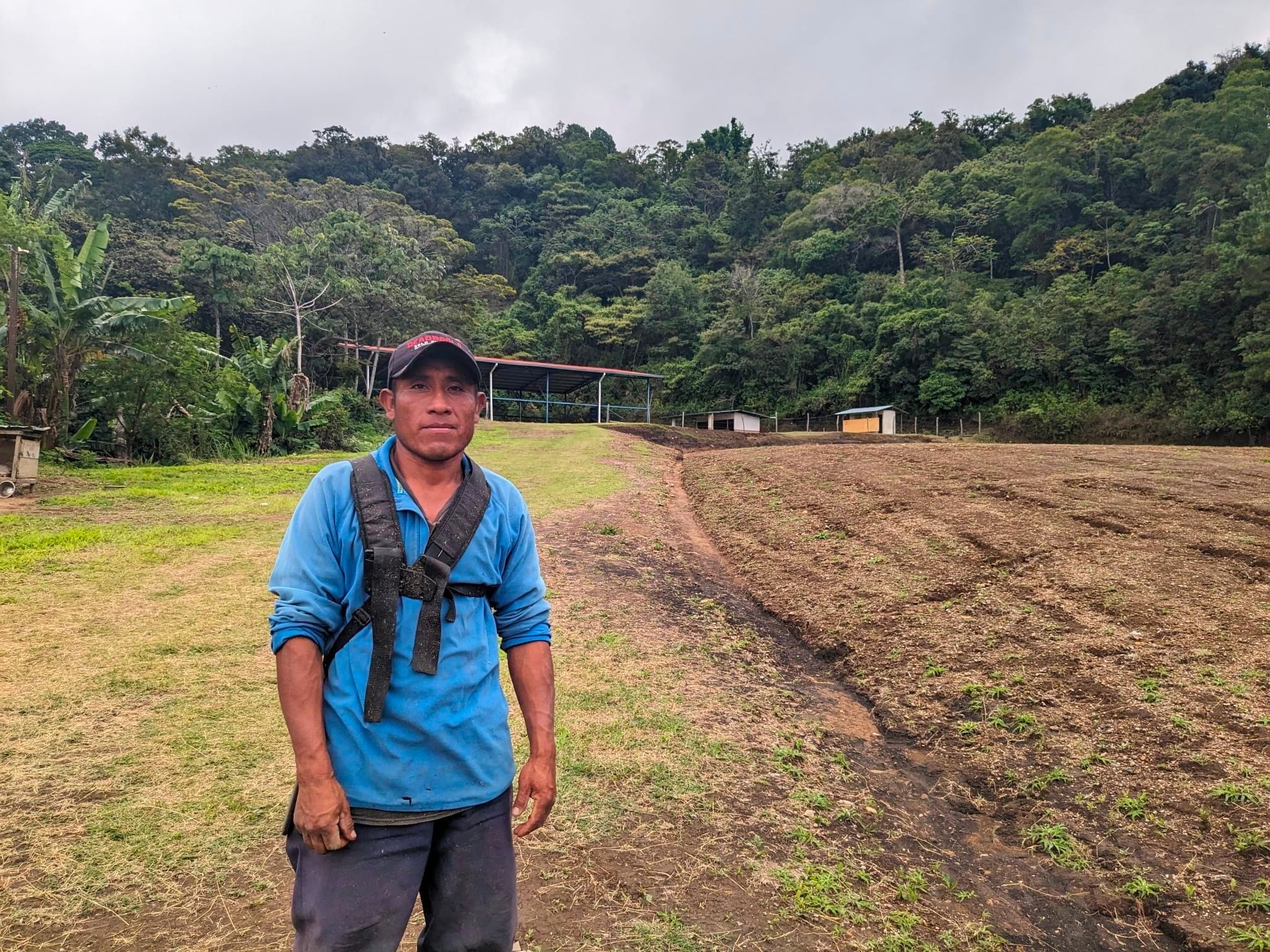
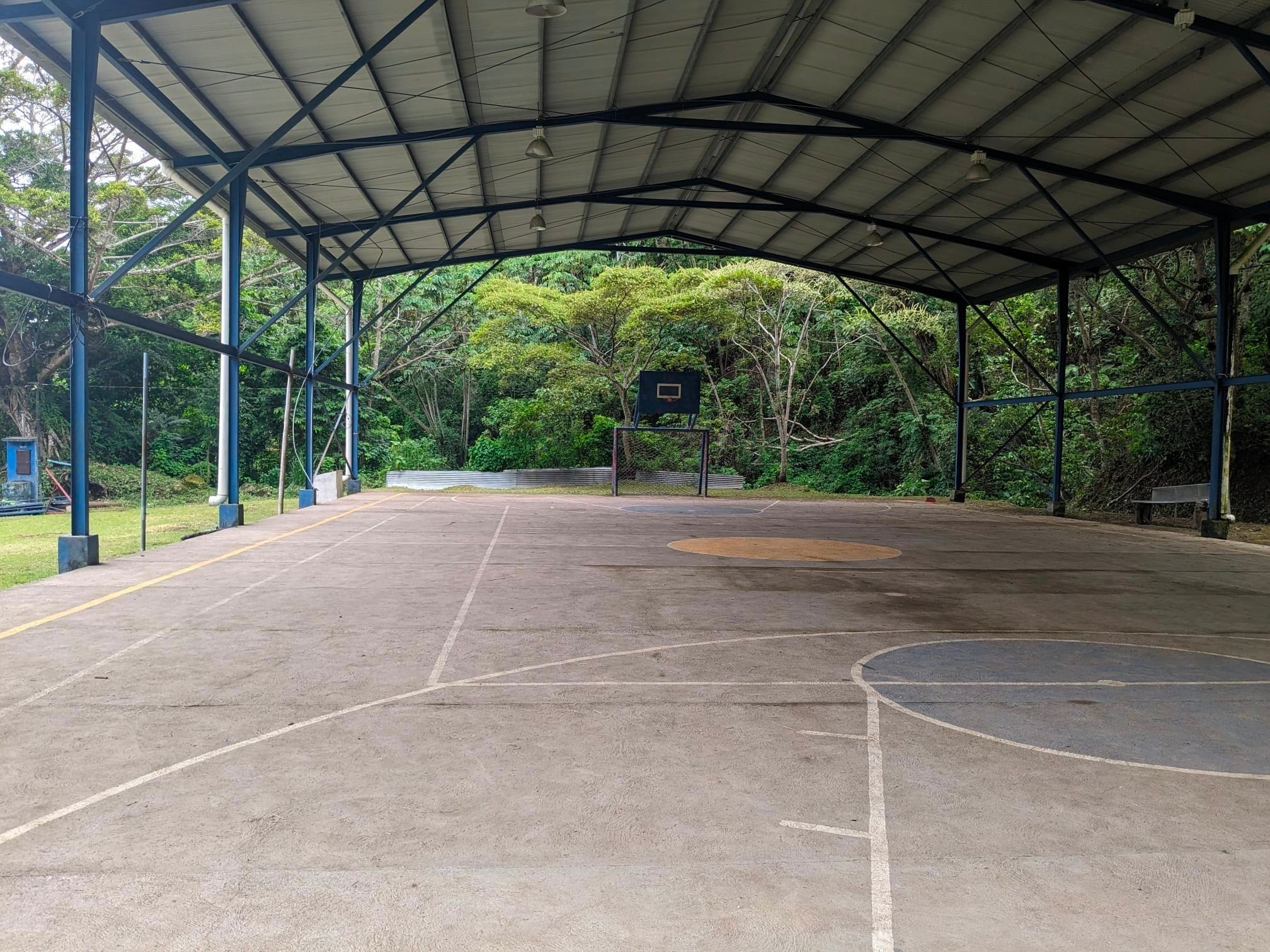
I’d rather do this than pay taxes
Now, the opinion of many people in my community (and many people in general) is that they are adamantly against privately funded infrastructure improvements. It goes against the very grain of how many (and seemingly, especially the retired Europeans and North Americans) are told the world is supposed to work. Even people I thought were close friends refused to get involved. “Too busy.” “They’ll just steal the money.”
To date, other than my immediate next door neighbors, one of whom generously paid her share of the road project, and the other who finally caved and helped out after I came up with solutions for some of the technical water pressure related issues - not a single person from my community not already affiliated with the water system or the government has offered to lift a single finger to help. I’ve made many local Facebook posts. People give likes and say they want to be involved. But when it comes down to it - nobody offers money, and nobody else goes out on a Friday night to fix the pipe that someone’s construction project tore up with a back hoe.
Community infrastructure is largely a thankless job. Most people are simply consumers. They feel entitled. Even the ones who don’t pay taxes. The only heartfelt thanks you’ll ever get from anybody is from the other people who decided to take responsibility. As far as the government goes - they care during an election year. Many of them are also so driven by adhering to the letter of the law that they can’t see all the ways the law is deficient. One group of authorities wanted to put Chino in prison for “public corruption” for receiving a $40 daily stipend (when he normally makes $100 per day as an electrician) for working from dawn till well past dark for months on end delivering water to 500 citizens.
What this adventure has taught me so far is that some of the best people in the world have half their teeth falling out and spend many of their days digging ditches for free. What’s ironic is that those people have far more vision for and concern about the future than many of the millionaire retirees who settle here.
My town was put on the map when an American man developed a valley and called it “Galt’s Gulch”. The name is a reference to Ayn Rand’s Atlas Shrugged, where capable men left their posts in organized society to collaborate with each other and build a community utopia where people were valued for their individual contributions.
I moved to Panama because of the territorial tax system and the Foreign Earned Income Exclusion. I wanted to live in a place that wouldn’t tax all of my output. But my goal was never to simply be a parasite - it was to escape what I viewed as unjust taxation for things that didn’t benefit myself or my community.
I have a family now, and I can’t wait to tell my little girl one day that “dad helped build all this.” I never would have had the opportunity to be a part of building my community infrastructure in the US. I’m appreciative to have been given another outlet for my creative energy - one that is connected to the soil and people that surround me - and I am enjoying the collaboration with Chino and the other community leaders (mostly “elders”) who aren’t doing what they’re doing for power or money - but just because it needs to be done and benefits themselves and their families as well. I’ve also seen a local family invest millions and millions in local infrastructure - including what I believe to be the nicest park in Central America - and probably one of the best public libraries in any town of 20,000 people in the world. I have also drawn inspiration from their example of the kind of impact people with vision and resources can make on their community.
I also want to say that I am deeply appreciative to all of you who are patrons of my intellectual property and have given me a creative outlet and a new income stream.
Onwards and upwards, and you’re welcome to come visit in Panama and see what it’s like to build infrastructure at a community level in a developing country.
Calvin's thoughts is a reader-supported publication. To receive new posts and support my work, consider becoming a paid subscriber.

